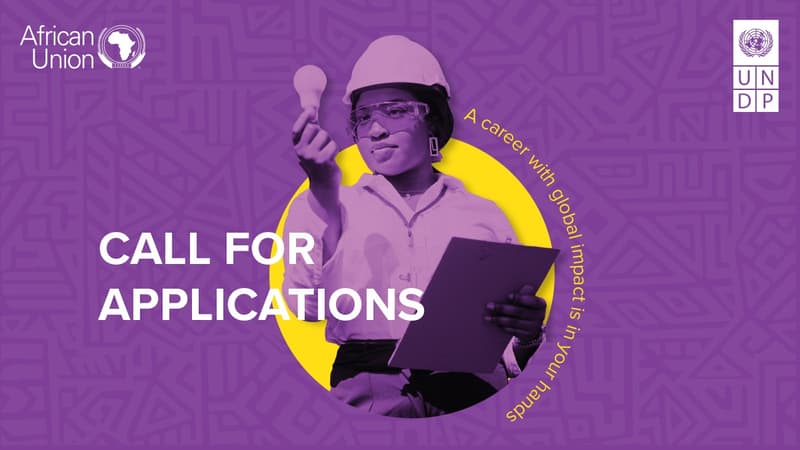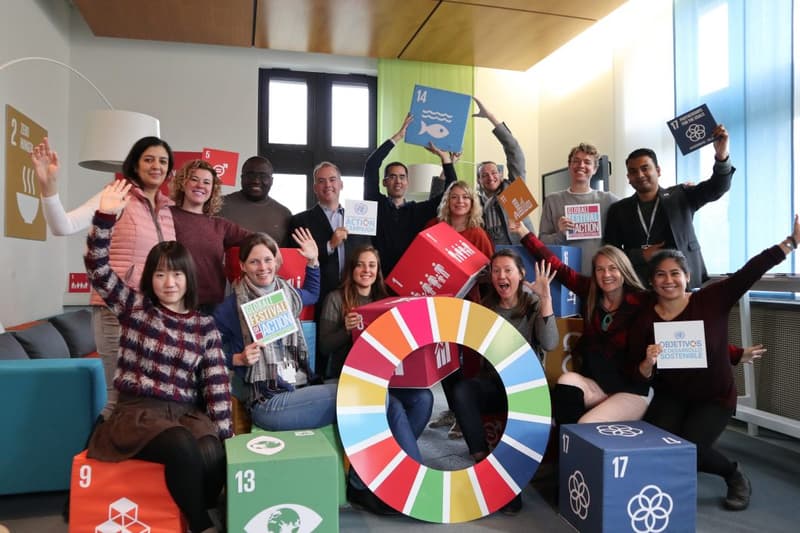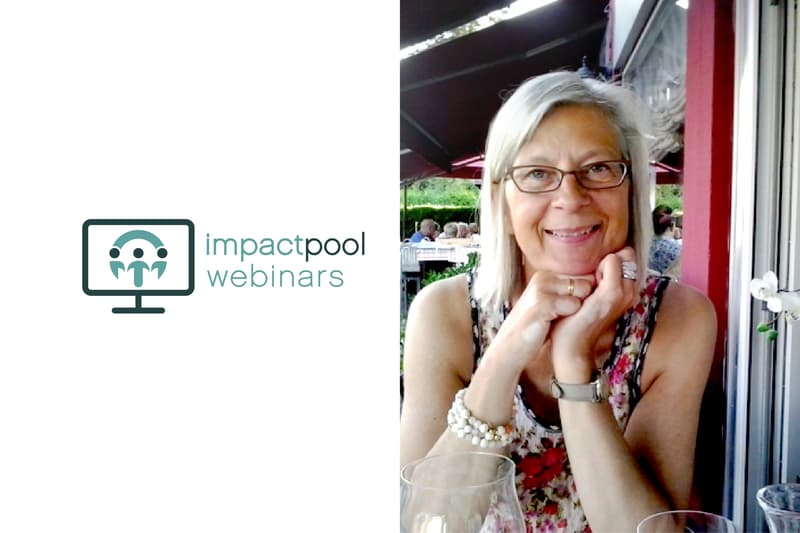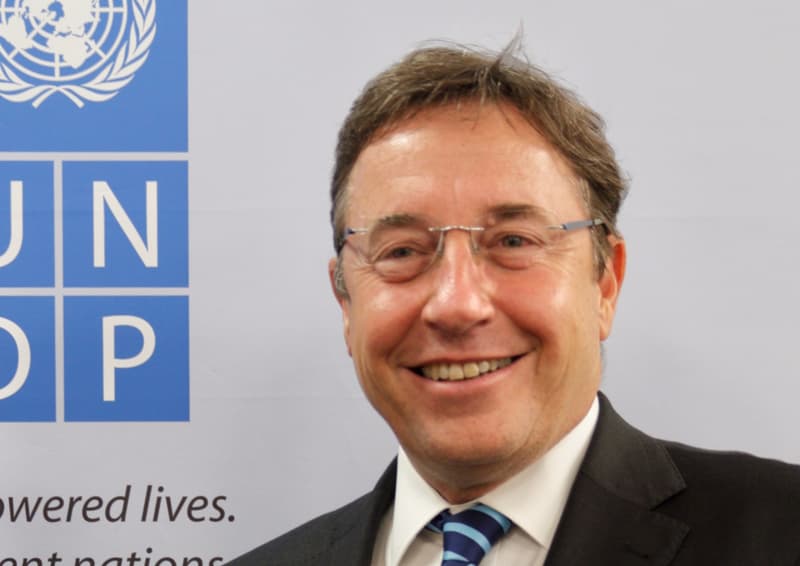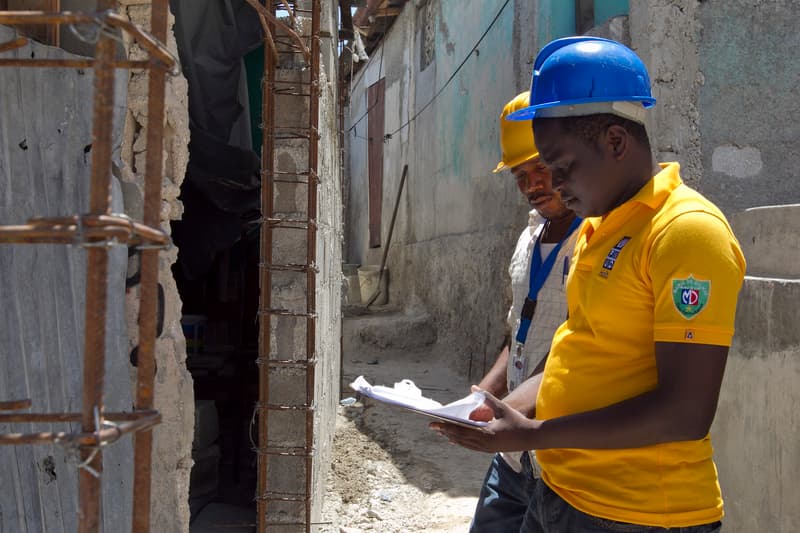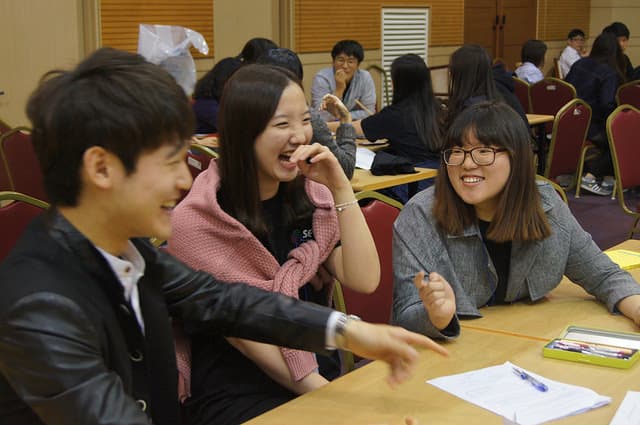PBF Regional Peacebldg Officer
Monrovia
- Organization: UNDP - United Nations Development Programme
- Location: Monrovia
- Grade: Level not specified - Level not specified
-
Occupational Groups:
- Peace and Development
- Closing Date: 2023-12-07
At the request of the Liberian Government, Liberia was officially placed on the Peacebuilding Commission Agenda on 27 May 2010 making the country eligible as a recipient of UN Peacebuilding Fund’s Peace and Recovery Facility (PRF). Since then the PBC has been engaged with Liberia supporting programs to strengthen rule of law, security sector and legal reforms, gender equality and women empowerment as well as national reconciliation through national and local peace infrastructures. These supportive initiatives are aligned to the Government Pro-poor Agenda for Prosperity and Development (PAPD) and SDGs 1, 5, 8, 16 as well as the United Nations Sustainable Development Cooperative Framework.
Liberia has undergone multiple transitions while needing to continue to consolidate the hard-won peacebuilding gains. The Security Council resolution 2333 (Dec 2016) ended UNMIL’s mandate on 30 March 2018 and the complete closure of the peacekeeping mission by 30 June 2018. The results of the UN’s Capacity Mapping Exercise, completed in May 2017, indicated that UNMIL’s withdrawal and departure will result in a severe reduction in resources, capacities and expertise in consolidating peace building gains. The PBF leveraged its financing to support a smooth transition as well as sustain the peace gains within the context of addressing pre-existed and emerging peacebuilding challenges including a poor economy where root causes and conflict drivers remain unresolved.
To address this, the S-G approved the Executive Committee Decision 2017/88 (Liberia) (September 2017) to strengthen and expand the Resident Coordinator’s Office, establish the OHCHR office and a pooled fund (the Liberia Multi Partner Trust Fund) to support peace
consolidation, human rights, rule of law, reconciliation and the implementation of the Sustainable Development Goals (SDGs) in Liberia. The Liberia Multi-Partner Trust Fund (LMPTF) was anchored on a vision of realizing less dependency on the international community assistance for peace and security and placing the country on a stable trajectory to achieve the 2030 Agenda for Sustainable Development. The LMPTF was designed to support Sustaining Peace and peace consolidation in Liberia through the implementation of the Liberia Peacebuilding Plan priorities and the delivery of the United Nation’s Development Assistance Framework (UNDAF) in support of implementing the Government’s Pro-Poor Agenda for Prosperity and Development. The new government has prioritized peace consolidation by establishing a stand-along pillar on ‘sustaining peace’.
Since 2018, the LMPTF has been supported by the Peacebuilding Fund as the only donor, whose financing modality is premised on catalytic support. Further financing of the LMPTF has been reconsidered by the PBF, reverting to its traditional financing of peacebuilding initiatives through its Peacebuilding and Recovery Facility (PRF)and Immediate Response Facility (IRF) windows.
Under the current PBF portfolio, a secretariat exists, operating under the auspices of the RC whose responsibility is to ensure overall coordination, monitoring and reporting of peacebuilding programming in Liberia, working closely with the UNCT, the Government and CSOs involved in peacebuilding programmes. The PBF Secretariat brings efficiencies and effectiveness in overall coordination of peacebuilding programming in Liberia. The PBF Secretariat helps to coordinate monitoring approaches between projects, and monitor progress against the peacebuilding context, the risks and the high-level peacebuilding priorities supported by PBF.
PBF Programming Support to Mano River Union Countries (MRU
The Mano River Union region comprises Côte d'Ivoire, Guinéa, Liberia and Sierra Leone. The region underwent several decades of conflict and has now returned to stability. Tensions remain however, particularly in border areas, despite strong historical and cultural ties, and reconciliation is a work in progress. People who returned to or remained in border communities often have relatively fewer opportunities for education, skills development, training, employment and indeed mobility. Environmental pressures and land disputes are adding to these challenges. Opportunities to build community resilience and social cohesion, often based on traditional systems, include cross-border and sub-regional cooperation in areas such as dialogue, citizen engagement, economic integration, youth and women productivity and enhanced security.
The position of Peacebuilding Officer is based in Monrovia, Liberia, and is located in the Office of the Resident Coordinator for Liberia, working closely with the PBF Secretariat in Monrovia.
The incumbent will report to the Resident Coordinator for Liberia and will, as required, provide guidance to the RCs and UN Country Teams in the four countries of the Mano River Union region in identifying entry points for cross-border and sub-regional peacebuilding initiatives, supporting programme design and elaboration, providing analysis on sub-regional challenges and priorities and building support among partners for current and new cross-border and sub-regional peace and development initiatives. The Peacebuilding Officer will also have an indirect reporting line to the UN Peacebuilding Support Office (PBSO) in New York.
The Peacebuilding Officer will regularly travel to Côte d'Ivoire, Guinée, and Sierra Leone, as advised by the RCs for those countries, to explore programmatic and partnership opportunities for peacebuilding.
Within the limits of delegated authority and in close cooperation with Peace and Development Advisors (PDAs) and the PBF Secretariat/PBF Coordinator in Monrovia, the Peacebuilding Officer will be responsible for performing the following duties.
- Identify opportunities to coordinate and support the development of proposals for cross-border and sub-regional collaboration and programmatic interventions to promote peacebuilding in the four countries of the Manu River Union region, in close collaboration with the Resident Coordinators and the United Nations Country Teams;
- Develop and implement methodologies for tracking peacebuilding issues and progress with regards to cross-border and regional peacebuilding priorities in the four countries of the Mano River Union region, in collaboration with the Resident Coordinators, United Nations Country Teams and other partners;
- Identify opportunities for and, in full cooperation with the RCs and the UNCTs, support the development of a strategic approach to partnerships between the UNCT and regional stakeholders contributing to UN objectives and peacebuilding processes in the Mano River Union region including with IFIs, UNOWAS, ECOWAS and the Mano River Union Secretariat;
- Produce, as appropriate and required, analytical and situational notes on relevant sub-regional cross-border issues to inform decision-making and advocacy for PBF and other donor support;
- Based on guidance provided by the RCs, UNCTs and the PDAs, exchange with UNOWAS on strategic and programmatic areas pertaining to cross-border and sub-regional peacebuilding within the Mano River Union;
- In collaboration with the PBF Coordinator in Monrovia, provide technical peacebuilding design expertise for the elaboration of Peacebuilding Fund (PBF) projects in Liberia for initiatives including, but not limited to, social cohesion, women empowerment and participation, youth engagement, peaceful electoral environment, security sector cooperation, climate security, land conflict, in accordance with the PBF Strategic Result Framework and emerging peacebuilding priorities;
- In collaboration with the PBF Coordinator in Monrovia, support more effective collaboration across the humanitarian–development–peace nexus (HDPN), results-focus and programme sustainability, catalytic results within PBF programming and project design based on existing good practice and support resource mobilisation;
- Provide updates to PBSO on PBF programs in Liberia and on the regional initiatives from time to time, as needed.
Core Competencies:
Achieve Results: LEVEL 3: Set and align challenging, achievable objectives for multiple projects, have a lasting impact
Think Innovatively: LEVEL 3: Proactively mitigate potential risks, and develop new ideas to solve complex problems
Learn Continuously: LEVEL 3: Create and act on opportunities to expand horizons, diversify experiences
Adapt with Agility: LEVEL 3: Proactively initiate and champion change, manage multiple competing demands
Act with Determination: LEVEL 3: Think beyond immediate task/barriers and take action to achieve greater results
Engage and Partner: LEVEL 3: Political savvy, navigate the complex landscape, champion inter-agency collaboration
Enable Diversity and Inclusion: LEVEL 3: Appreciate the benefits of a diverse workforce and champion inclusivity
Cross-Functional & Technical Competencies:
Business Management– Digital Awareness and Literacy
- Ability and inclination to rapidly adopt new technologies, either through skilfully grasping their usage or through understanding their impact and empowering others to use them as needed.
Business Development - Knowledge Generation
- Ability to research and turn information into useful knowledge, relevant for context, or responsive to a stated need.
Business Management - Working with Evidence and Data
- Ability to inspect, cleanse, transform and model data with the goal of discovering useful information, informing conclusions and supporting decision-making.
Business Development - Human-centered Design
- Ability to develop solutions to problems by involving the human perspective in all steps of the problem-solving process
Business Development - Knowledge Facilitation
- Ability to animate individuals and communities of contributors to participate and share, particularly externally
2030 Agenda: Engagement and Effectiveness – SDG Integration
- SDG Monitoring and Reporting
Partnership management – Relationship management
- Ability to engage with a wide range of public and private partners, build, sustain and/or strengthen working relations, trust and mutual understanding.
Education:
- An advanced university degree (Master's or equivalent) is required in international relations, communications, administration, social sciences, or related areas.
- A first-level university degree (Bachelor’s degree) with two additional years of qualifying experience may be accepted instead of an advanced one.
Experience:
- A minimum of seven (7) years (with Master’s degree) or nine (9) years (with Bachelor’s degree) of progressively responsible experience is required in the intergovernmental, political, and diplomatic fields or related areas.
- Experience in collaboration and designing interventions with Member States, International Financial Institutions, UN Agencies, Funds, Programmes, or comparable international organizations is required.
- Experience working on peace processes in Africa is required.
- A minimum of three years of experience working in support of a UN Resident Coordinator or UN Country Team on peacebuilding issues is desirable.
Language:
- Fluency in oral and written English is required.
- Working knowledge of French will be an asset.


